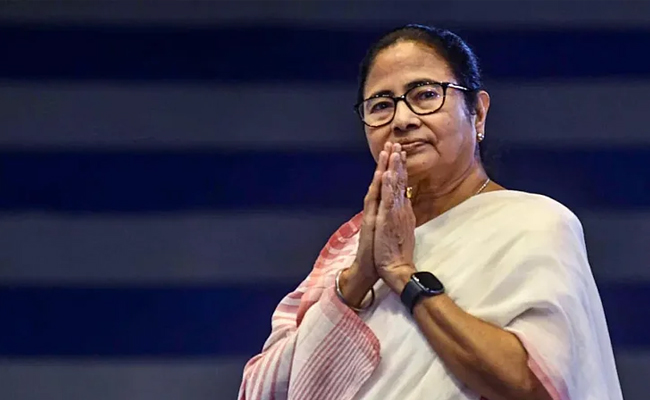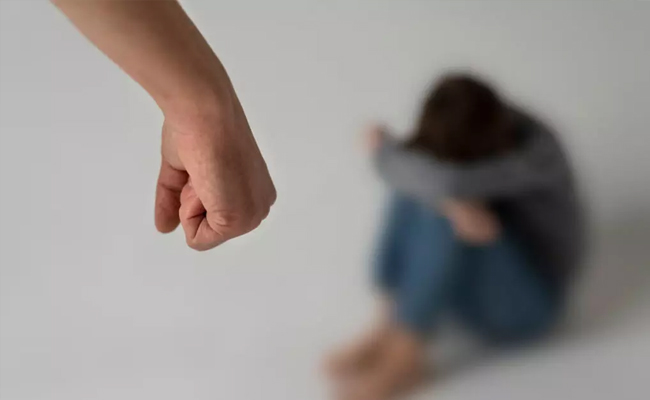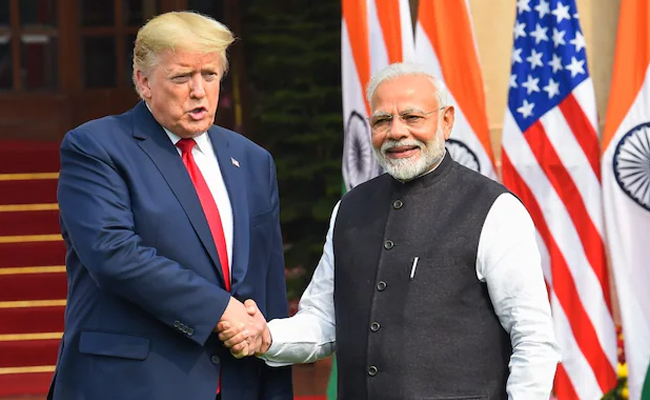Mumbai, Oct 3: BJP leader Pragya Thakur, a prime accused in the September 2008 bomb blast in Malegaon in Maharashtra alleged to have been carried out by Hindu extremists, on Thursday sought to shift the blame by claiming the explosion could have been set off by the banned Students' Islamic Movement of India (SIMI).
Thakur's assertion was made during final arguments presented by her advocate J P Mishra in a special court in Mumbai hearing the 16-year-old case.
Mishra argued that an office of SIMI was located near the blast site, asserting the incident could have been an "accidental explosion" involving explosives transported by the banned group.
The blast, which occurred on September 29, 2008, killed six individuals and injured over 100 when a motorcycle rigged with explosives detonated near a mosque in Malegaon town in Nashik district, approximately 200 kilometres from Mumbai.
During the proceedings, Mishra alleged that local residents obstructed police access to the blast site immediately following the explosion and claimed this could have been a deliberate act to shield the accused and protect individuals associated with SIMI.
Whenever there is an incident such as this, people help the police. However, in this case, a large crowd gathered and pelted stones at police, preventing them from reaching the blast site, the advocate claimed.
"This could have been done to shield the accused. This could have been done to protect their people (belonging to SIMI)," Mishra alleged.
The prosecution has maintained that Thakur, along with co-accused, including Lt Col Prasad Purohit, conspired to orchestrate the blast, with the motorcycle identified as belonging to the BJP leader.
Notably, the court had previously ordered the former BJP Lok Sabha member from Bhopal, who is currently out on bail, to attend the hearing, but she was absent on Thursday.
Mishra further contended that the charges framed by the court did not assign specific roles to any of the accused, indicating gaps in the prosecution's case. He is expected to continue his arguments on Friday.
The 2008 blast in Malegaon was not an isolated incident. It occurred two years after a similar attack in the communally sensitive town on September 8, 2006, which killed 37 people.
In the 2006 case, the Maharashtra Anti-Terrorism Squad (ATS) had arrested nine Muslim men allegedly linked to SIMI, claiming the blast aimed to incite communal tension.
While one of them died awaiting trial, in 2016 a special court discharged the remaining eight citing lack of evidence and labelling them as "scapegoats".
The 2006 Malegaon blast probe was later handed over to the National Investigation Agency (NIA), which subsequently arrested four individuals -- identified as Dhan Singh, Lokesh Sharma, Manohar Narwaria and Rajendra Chaudhary -- in 2013. They were granted bail in 2019.
In the ongoing trial for the 2008 incident, besides Thakur, other accused include Lt Col Purohit, Major Ramesh Upadhyay (retired), and several others, all charged under the Unlawful Activities (Prevention) Act, an anti-terror act, and the Indian Penal Code.
The case, initially investigated by the ATS, was transferred to the NIA in 2011. The special court framed charges against the accused in October 2018, and throughout the trial, 323 prosecution witnesses were examined, with 34 of them turning hostile.
Let the Truth be known. If you read VB and like VB, please be a VB Supporter and Help us deliver the Truth to one and all.
Thiruvananthapuram (PTI): Buoyed by the strong performance of the Congress-led UDF in the local body polls, KPCC president Sunny Joseph said on Saturday that the front's results indicated the people had rejected the LDF government.
According to early trends, the UDF was leading in more grama panchayats, block panchayats, municipalities and corporations than the LDF.
The local body polls were held in two phases in the state earlier this week.
ALSO READ: Cong candidate who moved Kerala HC for name reinstatement in voter list, wins
Speaking to reporters here, Joseph said the people of Kerala had extended their support to the UDF.
"We could expose the LDF government’s anti-people stance and the people understood it. The LDF’s fake propaganda was rejected by the people. The UDF is moving towards a historic victory," he said.
He said a united effort, proper preparations, good candidate selection and hard work had resulted in the Congress and the UDF’s victory in the elections.
Asked about the prospects in the Thiruvananthapuram Corporation, Joseph said the party was studying the matter and would comment later.
LDF convenor T P Ramakrishnan said the results would be closely examined.
According to him, the government had done everything possible for the people.
"Why such a verdict happened will be examined at the micro level. People’s opinion will be considered and further steps will be taken," he said.
He added that decisions would be taken after analysing the results. "If any corrective measures are required, we will initiate them and move forward," he said.
AICC leader K C Venugopal said the results showed that people had begun ousting those who, he alleged, were responsible for the loss of gold at Lord Ayyappa’s temple.
"This trend will continue in the Assembly elections as well. It is an indication that the people are ready to bring down the LDF government," he said.
Venugopal said the UDF had registered victories even in CPI(M) and LDF strongholds.
"I congratulate all UDF workers for their hard work. Congress workers and leaders worked unitedly," he said.
Referring to remarks made by Chief Minister Pinarayi Vijayan against the Congress on polling day, Venugopal said the voters had responded through the verdict.
"I do not know whether the chief minister understands that the people are against him. Otherwise, he does not know the sentiment of the people. The state government cannot move an inch further," he said.
He said the results indicated a strong comeback for the UDF in Kerala.
Asked whether the Sabarimala gold loss issue had affected the LDF in the local polls, Venugopal said the CM and the CPI(M) state secretary did not take the issue seriously.
"We took a strong stand on the matter. The BJP played a foul game in it," he alleged.
On the BJP's role in the local body elections, Venugopal alleged that the party operated with the CPI(M) 's tacit support.
"The CPI(M) supported the central government on issues such as PM-SHRI, labour codes and corruption in national highway construction. The CPI(M) is facing ideological decline, and the state government’s policies are against the party’s own decisions," he said.
Meanwhile, LDF ally Kerala Congress (M) leader Jose K Mani said the party could not win all the wards it had expected in the elections.
He congratulated winners from all parties and said the party would closely examine the losses and identify shortcomings. "Later, we will take corrective measures," he added.
Senior Congress leader and MP Rajmohan Unnithan said the trends in the local body elections indicated that the UDF would return to power in the 2026 Assembly elections.
"We will win 111 seats as in 1977 and return to power in 2026. The anti-government sentiment of the people is reflected in the elections," he said.
Unnithan said the people were disturbed and unhappy with the present government.
"The trend indicates the end of the LDF government," he added.
CPI(M) MLA M M Mani said the people had shown ingratitude towards the LDF despite benefiting from welfare schemes.
"After receiving all welfare schemes and living comfortably, people voted against us due to some temporary sentiments. Is that not ingratitude," he asked.
Mani said no such welfare initiatives had taken place in Kerala earlier.
"People are receiving pensions and have enough to eat. Even after getting all this, they voted against us. This is what can be called ingratitude," he said.
Muslim League state president Panakkad Sayyid Sadiq Ali Shihab Thangal said the results were beyond expectations.
"The outcome points towards the Secretariat in Thiruvananthapuram, indicating that a change of government is imminent. We are going to win the Assembly election," he said.





